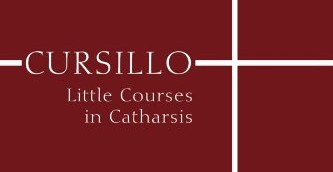If we are serious about following Christ in these deceptive days, we need to become fiercely discerning. Here is more info for your consideration on the popular 3 day “renewal” weekends.
*note 1/18/16 – Something that always popped out at me while I was researching today was the use of the word “candidate” for Tres Dias weekends. I’ve seen that word several times now referring to people being initiated into satanic cults. I just came across another one on a Freemasonry site and thought I’d use it to illustrate:
“It is said that in the degree of perfect master that the two pillars of Boaz and Jachin are fixed crossways and the candidate is asked ” Are you a perfect master ? Where the candidate answers “I have seen the circle and the square enclosing the two columns.”
We need to take note of these clues. It’s the nature of the occult to work “in plain sight”, as they like to laugh at our ignorance.
Here is an excellent examination of Tres Dias by Brian Janssen.
The techniques of Cursillo
No one seriously questions the dramatic effects of the Cursillo weekend. There is too much testimonial evidence to dispute it. Many participants will use phrases like “life-changing,” “best experience of my life,” “mountaintop,” or “miracles.” The real question is what produces these glowing reports.
According to Cursillo leaders it is not the content or doctrinal teaching offered during the weekend. Roman Catholic Cursillo expert Al Blatnik explains to new Cursillo converts: “The presentation of Christianity in the talks by the priests and the laymen contained nothing that you did not already know about your faith. It is the unique manner in which it is presented that is so effective” (Your Fourth Day, p. 26). If no new information is imparted during the weekend, then the results must be due to the techniques. To say the weekend is “orchestrated” for maximum emotional impact is an understatement according to Blatnik: “The weekend is the result of long years of work, experience and prayer. The psychology involved, the schedule, order of talks and events, and the content are carefully planned. Nothing is left to chance” (Your Fourth Day, p. 25).
These techniques are often referred to as “surprises.” While this may sound quite innocent, the “surprises” are actually a relentless series of powerful, psycho-social techniques which are commonly employed in forms of secular psychotherapy and often used by unscrupulous, cultic groups. I will describe some of these techniques.
A sense of anticipation is created in the candidates as an aura of mystery surrounds the approaching weekend due to the enforced secrecy. During the weekend itself candidates are exposed to emotional washing as they are run through a series of sudden and dramatic emotional shifts (the “surprises”). The technique of love bombing is used as candidates are continually applauded, flattered, and pampered. Strong peer pressure is exerted on them as the group direction, dominated by the numerous leaders present, is carefully steered toward the climax. And there is a reversion to childhood: candidates sit in table groups and draw posters with markers or crayons just like they did in elementary school, as a continual, silly, playful mood is fostered during the weekend.
We should mention also the unavoidable sleep deprivation, the withdrawal of familiar comforts and supports (no cell phones, only strangers in your table group, etc.), the loss of time consciousness (windows are covered, watches are confiscated, and no schedule is published), sensory over-stimulation (hugging, back rubs, close physical contact with strangers), and sometimes even dietary modifications resulting in a sugar high.
The purpose of these techniques is to keep the candidate disoriented and to break down their resistance and defense mechanisms. And the goal of this disorientation and wearing down is to precipitate a cathartic experience. A catharsis is a sudden discharge of pent-up emotions.
For many, the weekend begins with a sense of dreading the unknown. This is enhanced by the strange format and many surprises, by darkness and silence, and by moving and dramatic lectures and testimonies. Eventually such emotion seeks release, and when the dam breaks and the feelings flow, usually through weeping, the resultant discharge often creates a strong sense of relief and euphoria, a “breakthrough.” This is quickly redirected into exuberant joy, and the candidate is assured that they have had a powerful, religious experience. Most often this translates into a new commitment to the Cursillo agenda, a close bonding with similarly-affected, fellow candidates, and a loyalty to and affection for the leaders.
The use of such methods on unsuspecting Christians or non-Christians is itself inexcusable and unconscionable. But the plain fact is that all of these techniques are commonly known and used by cultic, religious groups and in secular, non-Christian psychotherapy groups. There is nothing particularly Christian about them. In fact, there is clearly something sub-Christian about them. The Apostle Paul decried the use of such tricks, and we should take his counsel to heart:
“For our appeal does not spring from error or impurity or any attempt to deceive, but just as we have been approved by God to be entrusted with the gospel, so we speak, not to please man, but to please God who tests our hearts.” (1 Thessalonians 2:3-4 ESV).
“But we have renounced disgraceful, underhanded ways. We refuse to practice cunning or to tamper with God’s word, but by the open statement of the truth we would commend ourselves to everyone’s conscience in the sight of God” (2 Corinthians 4:2 ESV).
Next time we will examine the lasting legacy of the Cursillo method on the participant and on the local church. For more information or to order the book, Cursillo: Little Courses in Catharsis, visit questioningcursillo.com.
~~~
(Also available on Amazon”Cursillo, Little Courses in Catharsis“)








![STARS, WARS, BLOOD & LUST… [The “royal secrets” of the Djedi knights of Scientism]](https://christianobserver.net/wp-content/uploads/2023/11/star-wars-blood-lust-150x150.jpg)

